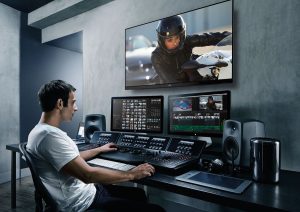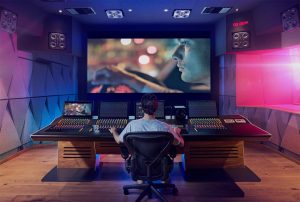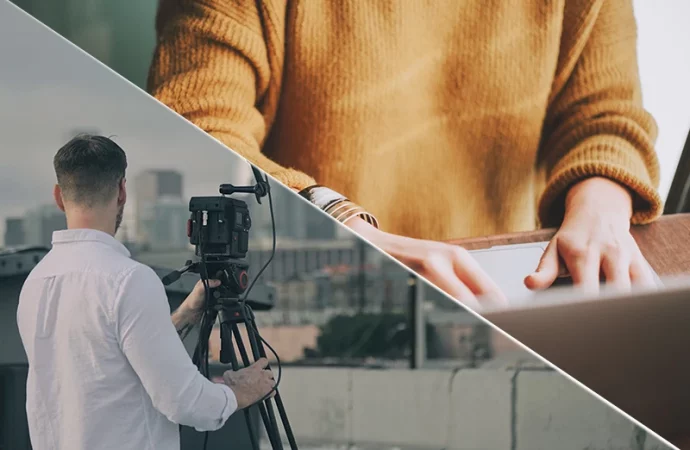Introduction The advent of Artificial Intelligence (AI) has revolutionized numerous industries, and the realm of film editing and post production is no exception From automating mundane tasks to enhancing creative processes, AI technologies are reshaping the way films are edited and finalized This article delves into the multifaceted impact of AI on film editing and
Introduction
The advent of Artificial Intelligence (AI) has revolutionized numerous industries, and the realm of film editing and post production is no exception From automating mundane tasks to enhancing creative processes, AI technologies are reshaping the way films are edited and finalized This article delves into the multifaceted impact of AI on film editing and post production, exploring both the opportunities and challenges that come with this technological evolution
The Evolution of Film Editing and Post Production

Image by: Yandex.com
1 Traditional Methods
Historically, film editing has been a labor intensive process requiring meticulous attention to detail Editors would manually splice film strips, adjust frames, and synchronize audio, often spending countless hours in the editing room Post production, encompassing tasks like color correction, sound design, and visual effects (VFX), also demanded significant manual effort and expertise
2 The Digital Revolution
The transition from analog to digital editing marked a significant milestone Nonlinear editing (NLE) systems like Avid Media Composer and Adobe Premiere Pro enabled editors to manipulate digital footage with unprecedented ease This shift not only streamlined workflows but also opened up new creative possibilities
The Advent of AI in Film Editing and Post Production

Image by: Yandex.com
1. Automation of Repetitive Tasks
One of the most immediate benefits of AI in film editing and post production is the automation of repetitive tasks AI algorithms can efficiently handle tasks such as:
- Scene Detection: Automatically identifying and segmenting scenes based on visual and audio cues.
- Footage Logging: Organizing and categorizing raw footage, making it easier for editors to locate specific clips
- Transcription: Converting spoken dialogue into text, facilitating the creation of subtitles and scripts
2. Enhanced Creative Tools
AI is not just about automation; it also offers advanced tools that augment the creative capabilities of editors and post production professionals Some notable examples include:
- AI Driven Color Grading: Tools like DaVinci Resolve’s Neural Engine use AI to suggest color adjustments, helping editors achieve consistent and visually appealing results
- Sound Design: AI powered software can analyze audio tracks to identify and isolate specific sounds, making it easier to enhance or modify them.
- Visual Effects: AI can assist in creating realistic VFX by automating tasks like rotoscoping and motion tracking
3. Intelligent Editing Assistants
AI driven editing assistants, such as Adobe’s Sensei and IBM Watson, are becoming increasingly sophisticated These tools can analyze footage to suggest edits, transitions, and even music tracks that align with the desired mood and pacing of a film By providing intelligent recommendations, AI helps editors make more informed creative decisions
Case Studies: AI in Action

Image by: Yandex.com
1. Morgan
In 2016, 20th Century Fox used IBM’s Watson to create a trailer for the film “Morgan” Watson analyzed hundreds of horror movie trailers to identify common elements and patterns It then selected scenes from “Morgan” that matched these criteria, resulting in a trailer that effectively captured the film’s suspenseful tone
2. The Irishman
Martin Scorsese’s “The Irishman” utilized AI driven deaging technology to make actors appear younger This involved complex algorithms that analyzed facial features and movements, allowing the filmmakers to create convincing visual effects without extensive manual intervention
Challenges and Ethical Considerations

Image by: Yandex.com
1. Quality Control
While AI can automate many tasks, maintaining high quality standards remains a challenge AI generated edits and effects may require human oversight to ensure they meet the desired artistic and technical criteria
2. Job Displacement
The rise of AI in film editing and postproduction raises concerns about job displacement As AI takes over repetitive tasks, there is a risk that certain roles may become redundant However, it’s important to note that AI is also creating new opportunities for skilled professionals who can leverage these technologies
3. Ethical Concerns
The use of AI in film editing and postproduction also brings ethical considerations to the forefront Issues such as deepfake technology and the potential for AI generated content to mislead audiences must be addressed responsibly
The Future of AI in Film Editing and Post Production

Image by: Yandex.com
1. Continued Innovation
As AI technologies continue to evolve, we can expect even more sophisticated tools and applications in film editing and postproduction Future advancements may include:
- Real Time Editing: AI driven systems capable of making real time editing decisions based on live feedback.
- Personalized Content: AI algorithms that tailor film edits to individual viewer preferences, creating a more personalized viewing experience.
- Collaborative AI: Tools that facilitate seamless collaboration between human editors and AI, enhancing the creative process.
2. Human AI Collaboration
The future of film editing and post production lies in the synergy between human creativity and AI capabilities By embracing AI as a collaborative partner, filmmakers can push the boundaries of what is possible, creating more engaging and innovative content
Conclusion
The impact of AI on film editing and post production is profound and multifaceted From automating mundane tasks to enhancing creative processes, AI is transforming the way films are crafted and finalized While challenges and ethical considerations remain, the potential benefits of AI driven technologies are undeniable As we look to the future, the collaboration between human ingenuity and AI promises to usher in a new era of filmmaking, characterized by unprecedented creativity and efficiency
















